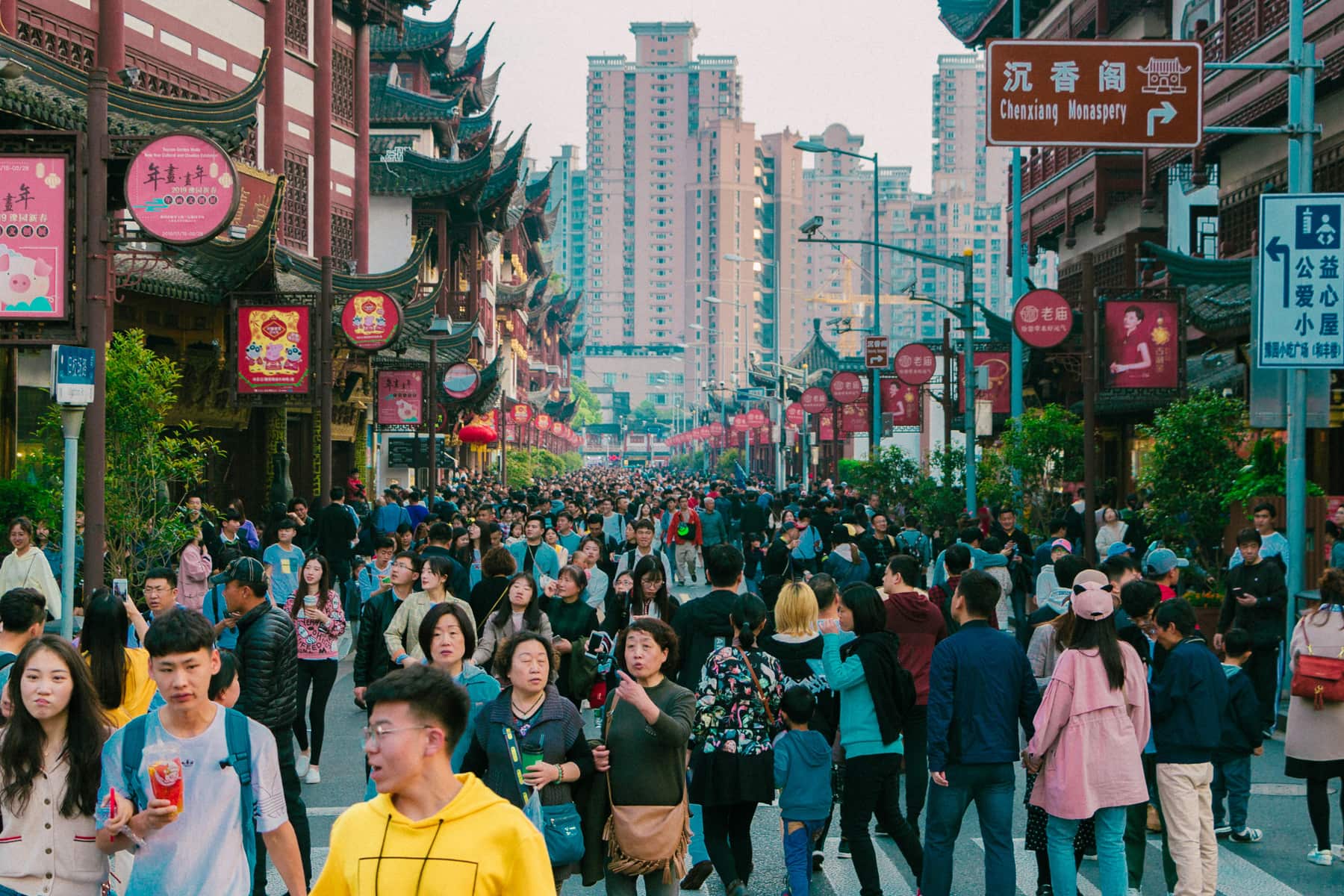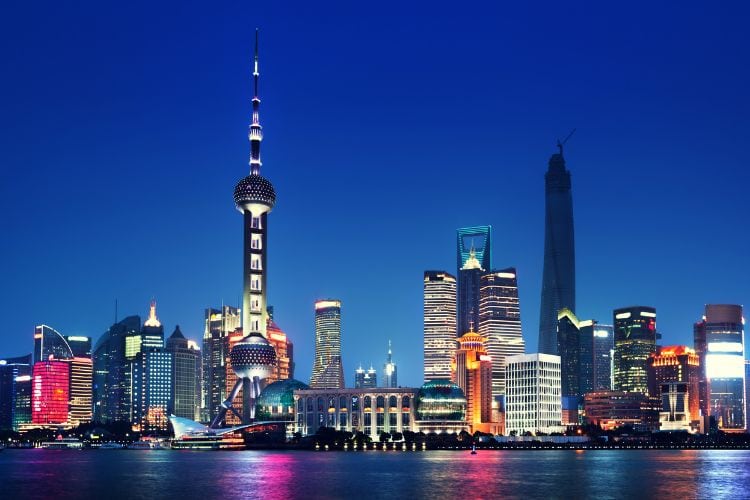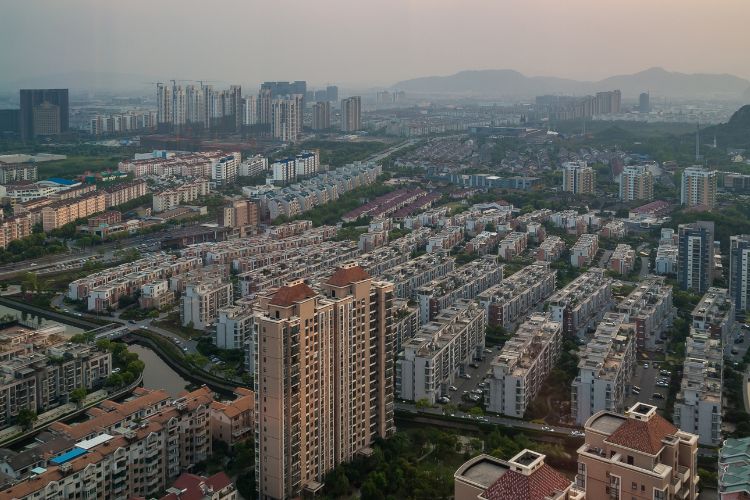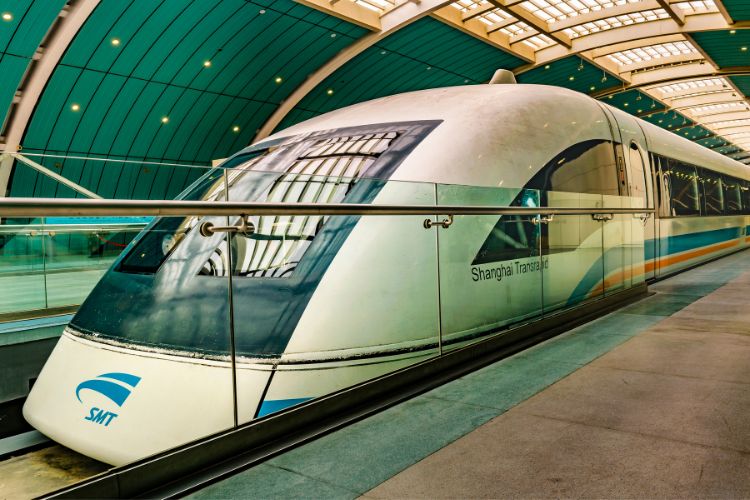
Go World Travel is reader-supported and may earn a commission from purchases made through links in this piece.
China is a challenging place to backpack solo, especially without a jot of mandarin or a local connection. Owing to the pandemic and tense geopolitics the Chinese tourist economy runs independently from westerners. Here your dollars and pounds are not sought after, locals would rather win a Beijing Yuan than a London bob (they’re richer than you).
This can be disarming for the North-London backpacker who, despite self -professed spirituality, rather enjoys the pseudo celebrity of white skin and an excellent exchange rate. Arriving in China from northern Vietnam I found it alarming and a little upsetting that I couldn’t cheerily bend the world to my will with the waft of a Monzo card. In China they don’t need your cash, so be polite, learn a little mandarin and get used to saying thank you.
A World Within Itself

China is an incredibly modern and at times bleak country, more so if you come looking for the pagodas and walled cities of China’s fascinating past. It feels like a world within itself that could operate completely separated from the West. Outside of tourist sites, you will struggle to find an English speaker.
A hundred kilometres from the coast (a stone’s throw in China terms) people will start staring at you as a novelty. The high-speed train from Xi’an to Shanghai summed up this unromantic side of travelling in China. The dizzying modernity and uncomfortable government presence is balanced with exciting food and the curiosity and generosity of normal people.
Best Tips & Tools to Plan Your Trip
High-speed trains are often the conversation of the few travellers you meet in China, westerners marvel at how many there are and how fast they go. These sleek torpedoes may be an objective feat of engineering, but they make for boring chit-chat. Brits draw comparisons between our shambolic attempt at HighSpeed 2 and how the Chinese can cover their endless landmass in a spider’s web of super-fast rail.
Sights From a High-Speed Train

I sat on the aisle seat of a high-speed rail as it shot fifteen thousand kilometres from Xi’an, the ancient capital deep in the country’s interior, to shiny Shanghai in a zippy 7 hours. Past my window rushed a flat grey landscape covered in scrawny black trees and small grey houses.
Suddenly out of the flatness rose 30-floor tenement blocks, the first 30 seconds of apartment blocks were empty or unfinished. Quickly they became denser around the railway, and this continued mile after mile until I was in a thick forest of identical buildings. Between the blocks, you catch glimpses of the high rises extending deep into the horizon.
Unbelievably this continued for miles, with no focus or reason, not near any apparent city or civilization. The train didn’t even stop here. It’s a dense forest of people living in vertical nowhere. Occasionally there was a block designed with flare, built with little regard to aesthetics. The eye delights and locks onto this new beauty. It is the same delight inmates must feel at a variation in prison food. “Wow, brown rice, not mashed potatoes!”
Somehow more apartments are being built; and the forests are growing. Why or how they find people to fill them is beyond me. I believe the Chinese equivalent to Sisyphus is condemned to construct the same 30-floor apartment ad infinitum. After a while the forest thinned out and we returned to farmland with grey cement homesteads and neatly organised fields. Even the trees were modern. They grow in precise grids and none are more than 10 years old.
Read More: Getting Mugged by Monkeys on Mount Emei: One of China’s Holiest Mountains
A Tribute to China’s Rail Network

A small but crisp tv screen protruded from the ceiling of the carriage. Sometimes it provided us with useful information; don’t smoke in the carriage, don’t make loads of noise. Periodically it showed a rousing tribute to the noble history of China’s rail network. In the first scene, a beautiful girl in neat uniform smiles next to a table of conductors’ hats. This is cut with shots of trains going over China’s mystical landscape.
Then a man in his 80s smiles benevolently and picks up his old communist-era cap. He looks at it with great meaning and begins to shine the star badge on the cap. Then he laughs in slow motion, dons his cap and proudly salutes something off-screen, presumably a large table of conductor hats.
The clip ends with a slow zoom on the metal badge of a railway worker’s cap. In my head Hans Zimmer’s soaring violins underpin the importance of this close up. Perhaps Sports Direct outlets in the UK could benefit from this kind of worker/customer encouragement.
Read More: Exploring Yunnan: A Different Side of China
Feeding the Pale Monkey
The journey improved around Nanjing. Some of the kids became interested in this pale “monkey”. Monkey was what a guide at the Terracotta Warriors called Europeans, owing to our hairy arms. Under the supervision of their grandad, they presented me with some pig jerky, spiced pig meat, 5 melon jelly pots, meat flavour biscuits and some fish tofu. I scoffed it down in front of them, producing international this-is-delicious “mmmmmm”s; although I couldn’t face the fish tofu and slipped it into my bag.
In return, I gave the boys a British pound, a Hong Kong dollar and 1000 Vietnamese dong. The Vietnamese dong even caught the attention of the train attendants who rehearsed the translated English to ask where it was from. To converse with the two lads I used Google Translate which barely picked up their soft voices.
Their grandad smiled benignly at a distance as they brought me a carton of orange juice to wash down the various pork products. Throughout my short travels in China, I found that just when the otherworldliness and bleak dystopian modernity wore me down, the kindness of locals could restore my fighting spirit and remind me why I travelled all this way.
Read More:
Author Bio: Will Haslam is an eager global traveller and amateur writer.
- Travel Guide to Colorado - April 26, 2024
- Travel Guide to Croatia - April 26, 2024
- Top 10 Things to Do in Ireland - April 25, 2024


I thoroughly enjoyed that. *nods to large table of conductors’ hats*
Wow! Great article and really informative!